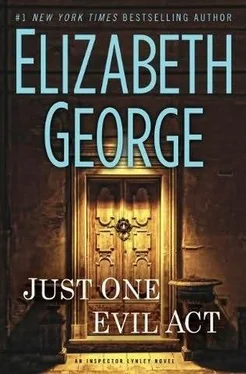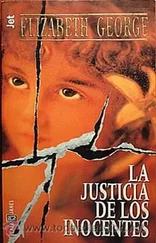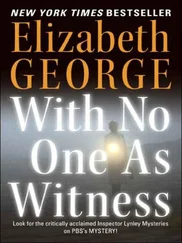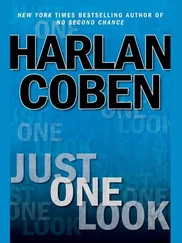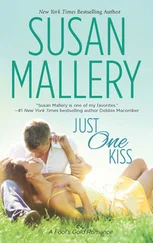When she could avoid it no longer, she headed out for Victoria Street in the fine May weather. Passing beneath the profusely blossoming limbs of the ornamental cherry trees, she decided on the Underground instead of her car, and she made her way over to Chalk Farm Road. This would allow her to stop at her local newsagent. She needed to know the worst in advance of having to deal with her superiors’ reaction to it.
Inside the place, it was airless as usual, its temperature a nod to the proprietor’s homeland. It was a shop just marginally wider than a corridor, with one wall devoted to magazines, broadsheets, and tabloids and the other to every kind of sweet and savoury known to humanity. What she wanted, though, was not going to be among what was on offer that morning. So she worked her way past three uniformed schoolgirls in earnest discussion of the health benefits of pretzels over crisps and a woman with a toddler attempting to escape his pushchair. At the till she asked Mr. Mudali if he had any remaining copies of yesterday’s edition of The Source . He responded with the assurance that indeed he had. He brought forth a bundled square of what had not sold from among the newspapers on the previous day. It was a simple matter to hand over The Source —she was lucky, he said, as there was only one left—and although he refused to take money for a day-old newspaper, she pressed it on him anyway. She also purchased a packet of Players and one of Juicy Fruit before she left the place.
She didn’t open The Source until she was on the Northern Line, where most unusually, she actually was able to secure a seat among the commuters heading for central London. For a moment she hoped against all reason that Mitchell had not made good his threat, but a simple glance at Kidnap Dad Behind It All told the tale.
Her very soul felt heavy. She folded the paper without reading the story. Then, two stops farther along, she reckoned she needed to prepare herself. The many phone calls from Lynley that she’d ignored spoke of the Met’s knowledge of her participation in everything concerning Hadiyyah’s kidnapping. No matter that she had not known of Azhar’s plan. She was complicit from the moment she’d involved Mitchell Corsico in manipulating New Scotland Yard into sending Lynley to Italy in the first place. Perhaps, she thought, she could come up with some sort of defence. The only way to do it was going to be to forearm herself through reading Mitch’s story.
So she unfolded the paper and did so. It was damning, of course. Names, dates, places, exchanges of cash . . . the whole rotten business. There was only one thing missing from the article. Nowhere in it was she herself mentioned.
Mitchell had deleted every reference to her before he’d sent the piece to his editor. She had no idea if this was mercy or a Machiavellian preparation for worse to come. There were, she knew, two ways to find out. She could wait for the future to unfold or she could ring the journalist himself. She chose the latter when she reached St. James’s Park Station. Walking along Broadway in the direction of the heavily secured front entrance to the Met, she rang the man on his mobile.
He was, she found, still in Italy, hot on every part of the E. coli story and the arrest of Lorenzo Mura. Had Barbara seen his piece this morning? he asked. It was another front-pager and he was dining out on the information he was supplying his cohorts in Italy who, alas, did not have his sources. By which, of course, he meant Barbara herself.
She said, “You changed the story.”
He said, “Eh?”
“The one you showed me. The one you were holding over me. The one . . . Mitchell, you took out my name.”
“Oh. Right. Well, what can I say? Old times’ sake, Barb. That and the goose.”
“I’m not the goose, there are no eggs, and we have no old times,” she told him.
He laughed outright at this. “But we will, Barb. Believe me. We will.”
She rang off. She passed a rubbish bin and tossed the day-old edition of The Source on top of a half-eaten takeaway egg salad croissant and a banana peel. She followed the line of people going through the Yard’s enhanced security system. She was safe from one kind of judgement, she reckoned. But she certainly wasn’t safe from others.
Winston Nkata was the one to tell her. Odd for him, she would think later, since Winston wasn’t given to gossip. But that something big was going on was evident the moment she stepped out of the lift. Three detective constables were earnestly talking at the black detective while a buzz of conversation in the air spoke of changes having nothing to do with a new case developing and a team beginning to work upon it. This was something different, so Barbara approached her fellow detective sergeant. There, in short order, the news broke over her. John Stewart was gone, and someone would soon be promoted to replace him. It was that or bring in a different DI. The DCs present round Winston’s desk were telling him he was all but poised to be the man of the hour. They had no ethnic DI under Ardery’s command. “Go for it, mate” was how they put it.
Nkata, ever the gentleman like his mentor Lynley, would make no move without Barbara’s blessing, and he asked her, “Have a word, Barb?” in order to get it. After all, she’d been a DS far longer than he, and just as they had no ethnic DI under the command of Isabelle Ardery, so also had they no female DI.
Nkata took her to the stairwell for a natter. He descended two steps to mitigate the great difference in their heights. What he had to say needed to come from an equal and height was a metaphor for this, she supposed.
He said, “Took the exam a while back. I di’n’t talk about it cos . . . Seemed like I would jinx it, eh? I passed, though, but I got to say it: You been a sergeant for a long time, Barb. I’m not goin for this if you want it.”
Barbara found this oddly charming, that Winston would defer to her when the likelihood of her even keeping her job at this point was more remote than the moon. Besides, it had to be said that Winston Nkata would always be the better choice to lead a team of coppers. He played by the rules. She did not. At the end of the day, that was a critical difference.
“Do it,” she told him.
“You sure, Barb?”
“Never more than now.”
He flashed his brilliant smile.
Then she went on, heading for the superintendent’s office to learn her fate. For she’d been spared by Mitchell Corsico, but her sins were still great nonetheless. Away without leave was among the worst of them. There was a price to pay, and she would pay it.
BELSIZE PARK
LONDON
Lynley found a parking space midway down the street, in front of the long line of terrace houses. It was in an area undergoing gentrification. The house in question, alas, had not been touched by this particular brand of architectural magic. He wondered—as he always did when it came to areas in transition—about the safety of this part of town. But then what was the point of such wondering when his own wife had been gunned down on the front steps of their house in a pricey neighbourhood unknown for anything other than a house alarm accidentally blaring when an owner stumbled home too inebriated to think about disarming it?
He grabbed up what he had brought with him to Belsize Park: a bottle of champagne and two long-stemmed flutes. He got out of the car, locked it, hoped for the best as he always did when he parked the Healey Elliott in the street, and climbed the front steps to a shallow porch where the Victorian tiles that lined it had, gratifyingly, remained unmolested.
He was a little late. A conversation with Barbara Havers had resulted in his offer to drive her home. Since driving her home put him in the area to which he was going anyway, it seemed the reasonable thing to do. But traffic had been bad.
Читать дальше
